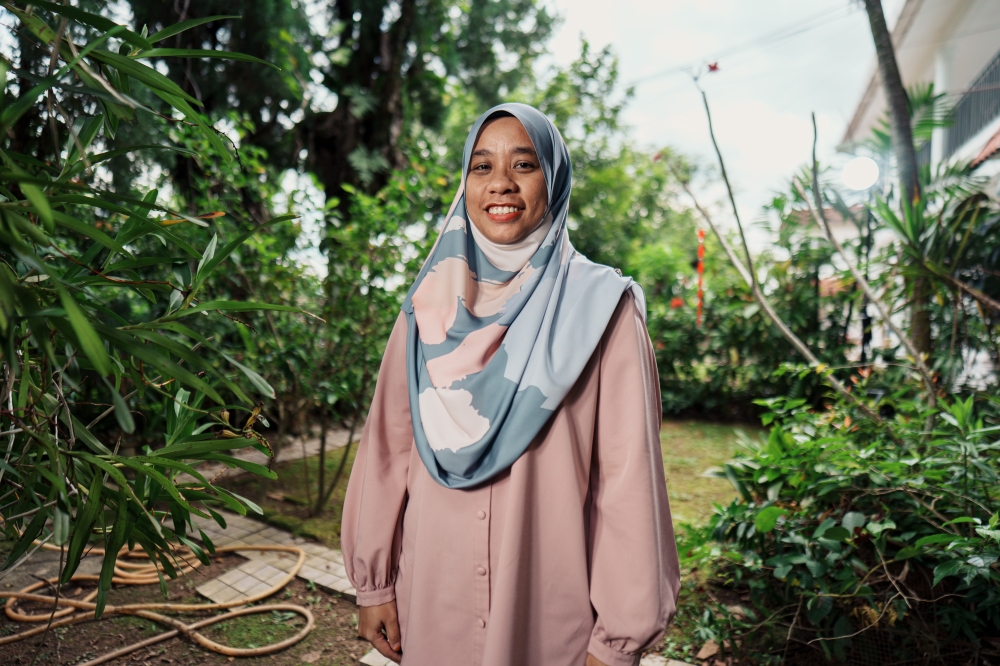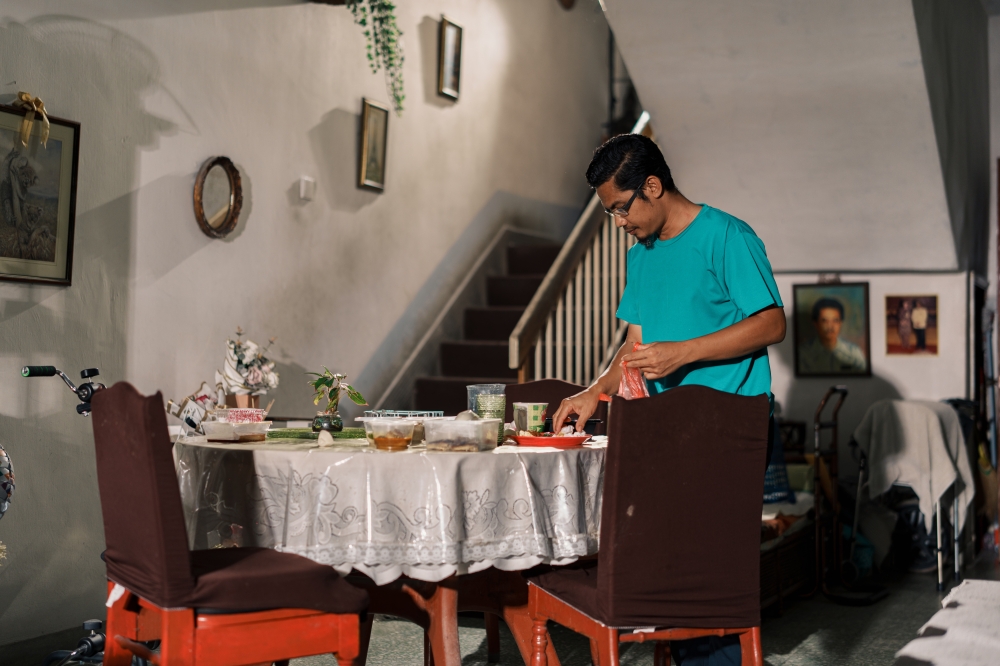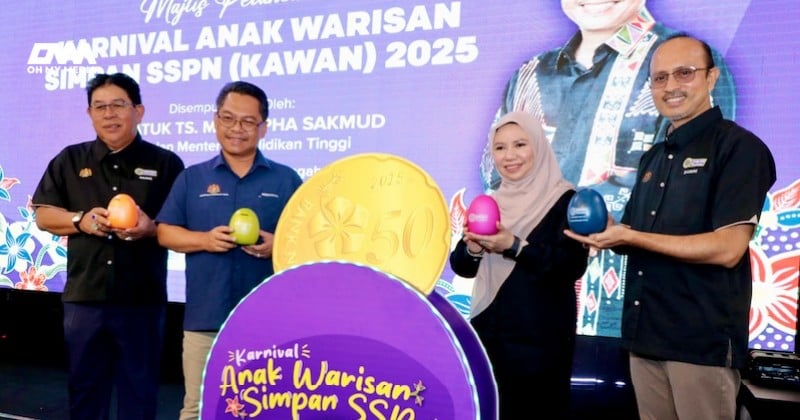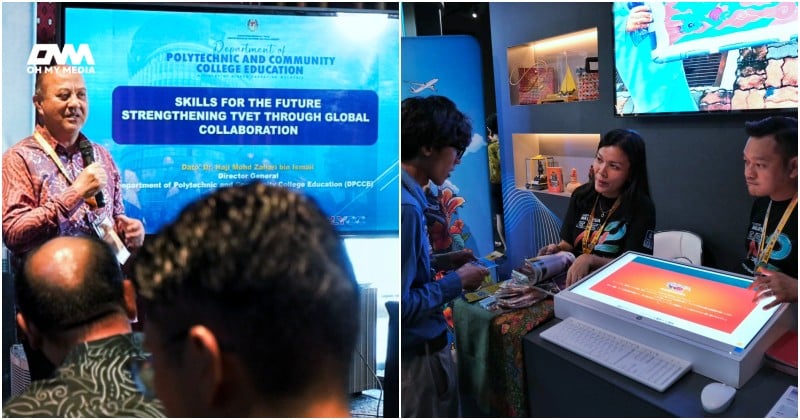KUALA LUMPUR, July 28 — Juggling work, parenthood and elderly care, Malaysia’s “sandwich generation” often faces burnout due to a lack of proper support systems.
Caught between responsibilities, many have been forced to quit their jobs so they can care for their family full-time because there are few accessible alternatives.
And then the Covid-19 pandemic happened.
For Teman Malaysia co-founder Ezzati Nasir, the time during the movement control order (MCO) highlighted a crucial need for these carers – caregivers.
“We saw a lot of problems that occurred among the seniors because their children were not able to go back to their parents.
“So that was our focus at the time,” she told Malay Mail in a recent interview.

Ezza Nasir, chief executive officer and co-founder of Teman Malaysia. — Picture courtesy of Yayasan Hasanah
Turning challenges into opportunities
Teman Malaysia was born in 2020 through an incubator programme called Social Enterprise Education Laboratory, powered by Petronas and Tata Consultancy Services.
Although there were already caregiving services in the market, the demand far outweighed the supply.
“We were part of the programme that was a place where social enterprises that solve social problems were put together, at the time also helping to solve youth unemployment,” Ezzati said.
“We were then looking for ways on how we can create a business that is able to create job opportunities to reduce youth unemployment rate at the time.
“That’s when we coupled the problem together; seniors who don’t have anyone to help them, and those who are in need of work/job opportunities.”
She said jobs like food delivery during the pandemic were mostly taken up by men, leaving women with fewer options.
Teman created an opportunity for unemployed women, especially as caregiving roles in Malaysian households typically fall on women.
“Our main objective was to incorporate the whole seniors ecosystem, however we’re not trying to provide healthcare services,” Ezzati said.
“We were focused on seniors who are still able but their children are not confident enough to let them do things on their own, so they just need a teman around.
“That’s how the Teman name came about.”
How Teman works
Unlike nursing services or retirement homes, Teman supports independent seniors who just need help with tasks like going to appointments, grocery shopping, or simply someone to chat with.
“I initially wanted to create a pool of Temanians who could accompany seniors who wanted to do the fun stuff like sports, recreational activities, eating and shopping.
“But as the team grew, we noticed that in Malaysia the need for medically related caregivers was still the main demand,” Ezzati said.
Teman started with 10 caregivers.
Today, over 300 people have been trained, with 40 to 60 actively working, mainly in the Klang Valley.
“One of our first training partners was the National Cancer Society Malaysia, recognising that many caregiving skills overlap with those used in palliative or long-term care,” said Ezzati.
The enterprise is working on a “travelling Temanian” package for families who want to travel with elderly parents who need support.
“It is my dream to be able to offer this type of service to help ease a family when they are travelling with seniors, but currently we don’t have full-time caregivers.
“For now, we have Temanians who apart from being a caregiver, they help support an existing caregiver, allowing the main caregiver some time off and personal time,” Ezzati said.

From just 10 people initially, Teman now has over 300 trained Temanians with 40 to 60 actively working, mainly in the Klang Valley. — Picture courtesy of Yayasan Hasanah
Teman operates on a pay-per-hour model, with short-term and long-term packages ranging from six hours to up to 10 hours daily, in 20-day booking blocks.
“Seventy per cent of the fees go directly to the Temanians, with the remaining 30 per cent sustaining the organisation,” Ezzati said.
With funding support from Yayasan Hasanah, Teman offers subsidised care for underserved seniors and families.
“Those referred by the Department of Social Welfare or zakat agencies receive services for free, funded through a blend of sponsorship and cross-subsidisation.
“Every month, we allocate 20 hours of free service for those who can’t afford it.
“We’re also exploring how by offering slightly premium services could help fund the cost of care for less fortunate clients,” Ezzati said.
Call for regulation
When Teman first launched, Ezzati said Malaysians didn’t see caregiving as a real job.
“Before Teman started, the climate at the time was that this is not something many Malaysians would like to do.
“They don’t look at this as a career opportunity. Formerly they would rather pay a domestic helper to take up this role, but now we can see a prospect of this becoming an income earner.
“We’ve seen many women who had to stop work to care for their children or sick parents, now their parents are no longer here, they already have the skill set to be a caregiver, why not join Teman and earn an income?”
Despite growing demand, Ezzati said Malaysia still lacks a clear national caregiving framework.
Her team is now working with non-profit groups like Kendana, and government agencies, seeking regulations for the welfare of caregivers and those on the receiving end.







